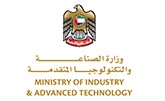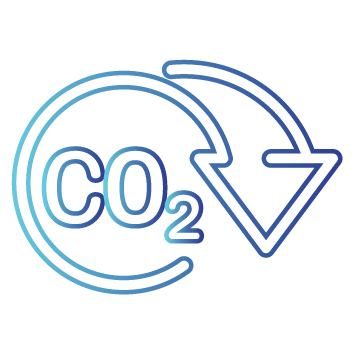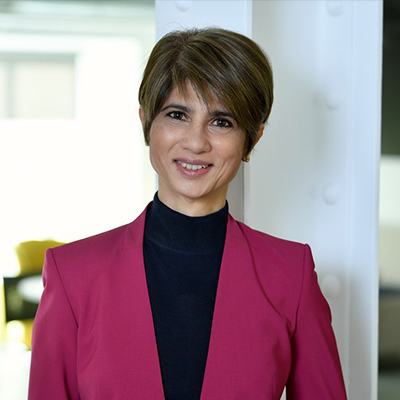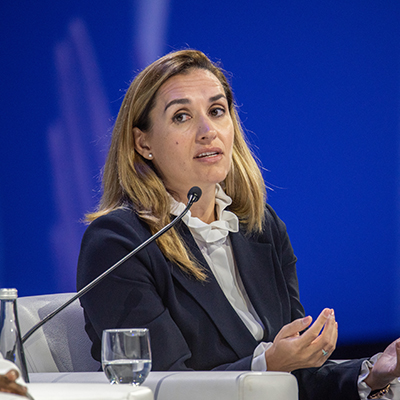Helping the energy industry to navigate the decarbonisation pathway
ADIPEC 2022 will convene the global energy supply chain to collaborate and accelerate the transition process, connecting companies to unlock real value for a decarbonised future and explore new technologies and solutions to the challenges and opportunities presented on the journey to net-zero.
As the industry continues the conversation on the Energy Transition, the newly launched Decarbonisation Zone at ADIPEC will provide a platform to translate the energy industry’s netzero pledges into net-zero realities.
Fossil fuels, including oil, coal and natural gas, supply around 80% of the world’s energy, but as recent events have illustrated, there is a need of a workable model for energy transition - one that is resilient enough to absorb external shocks, such as geopolitics and pandemics, yet pragmatic enough to reduce emissions linked to human activities.
Energy companies will not only play a key part of that transition, they will also have a leading voice in how that is achieved. Many of the innovations and technology we are seeing as part of the process are already coming from the oil and gas sector. Achieving net-zero emissions by 2050, however, needs to be weighed against a rising global population, increasing energy requirements and the cost implementation of reliable energy sources.
Meeting net-zero targets requires a fundamental transformation of the energy industry and CCUS, hydrogen, reducing methane emissions and new technology will play a central role in that process.
KEY THEMES TO BE DISCUSSED AT THE DECARBONISATION ZONE
BE PART OF ARTICULATING THE OIL AND GAS INDUSTRY’S PATH TOWARDS DECARBONISATION
The Decarbonisation Zone at ADIPEC 2022 is a new addition that reflects the growing need for decarbonisation strategies in the energy industry. The zone will be a forum for leaders in the energy ecosystem to discuss low-carbon technologies, and the essential role the oil and gas sector plays in accelerating the transition from fossil fuels to cleaner forms of energy.
The decarbonisation of global energy will be central to limiting average global warming to achieve net zero by 2050. The Decarbonisation Zone will be the centre of that conversation, with the most influential energy providers reinforcing their strategies and discussing low-carbon technologies as they navigate the route to decarbonisation.
The ADIPEC Decarbonisation Zone is a unique opportunity to be part of articulating the oil and gas industry’s path towards decarbonisation.
A PLATFORM FOR BOTH END USERS AND SOLUTION PROVIDERS, the Decarbonisation Zone will discuss the implications of decarbonisation on the energy industry and will promote technologies that lead to cleaner energy and the development of low carbon technologies such as CCUS.
MEET FACE-TO-FACE WITH DECISION MAKERS, c-level executives, government authorities, finance houses looking to invest and find solutions to translate their net-zero pledges to net-zero plans.
DISCUSS KEY CHALLENGES AND OPPORTUNITIES AROUND DECARBONISING OPERATIONS OF OIL AND GAS COMPANIES; with special emphasis on adoption and implementation, financing challenges, and collaboration opportunities.
EMPHASIS ON THE IMPORTANCE OF TECHNOLOGY PARTNERSHIPS AND INDUSTRY COLLABORATION to ensure decarbonisation solutions are identified and adopted across the value chain
HEAR FROM INDUSTRY EXPERTS
Solving the trilemma requires technical innovation, infrastructure development, and collaboration across industries and governments. The task of decarbonising the world is enormous and requires immediate action. ADIPEC 2022 has brought together policymakers, global energy leaders and industry professionals for an unparalleled opportunity to share insights and brainstorm ideas to address the challenge of the Energy Trilemma for a better tomorrow.
Dr. Pratima Rangarajan
CEO
OGCI Climate Investments
Acceleration is really necessary to ramp up CCU, whether this is in terms of policy, technology or finance. We need more projects going through de-risking and into execution to start decarbonizing further. We need to target more projects to FID (Final Investment Decision) with the solutions we have today. Forums like ADIPEC really help bring an alignment for the industry to move this forward.
Laure Mandrou
Senior Vice President, Carbon-Free Solutions
Technip Energies
Leaders in this industry understand that decarbonisation is essential. Getting there means starting now. It will take sincere collaboration and systematic change to achieve net-zero emissions. There is no better place than ADIPEC for engaging the world's energy buyers and producers at all levels of the business on the solutions that are necessary to succeed in time.
Mark Brownstein
Senior Vice President for Energy Transition
Environmental Defense Fund

WHO SHOULD PARTICIPATE AT THE DECARBONISATION ZONE?
- Advanced materials and composites
- Agents, Distributors, Manufacturers of Components of Energy Storage
- Applications in process industries
- Carbon Capture, Usage and Storage (CCUS)
- Carbon capture, utilisation and storage (CCUS) and hydrogen
- CCUS technology and components
- Components of Energy Storage
- Compression equipment
- Consultancy
- Control systems
- Conversion technologies
- Energy Efficiency
- Energy Intensive Industries
- Energy Management Systems
- Energy Storage
- Fuel cell components and auxiliaries
- Fuel cell design, development and manufacturing
- Fuel cell manufacturing and assembly
- Hydrogen electrolysers
- Hydrogen from biomass
- Hydrogen fuels
- Hydrogen refining processes
- Hydrogen to methane (gaseous)
- Hydrogen to methanol (liquid)
- Industrial logistics for decarbonisation
- Low-carbon hydrogen production
- Methane storage
- Methane feeding into the gas network
- Methane abatement
- Methane monitoring
- Methanisation
- Mobility Systems
- Net Zero Energy Building, Smart Building
- Next-Gen Ventilation, Energy Saving Equipment
- Production Technologies of Energy Storage Systems
- And many more
THE DECARBONISATION CONFERENCE
The Decarbonisation Conference, taking place in the Decarbonisation Theatre is a new and engaging programme gathering global experts to share their insights into the most innovative strategies and technologies centred on four pivotal themes for the industry: Methane, Hydrogen, Carbon Capture, Utilisation and Storage (CCUS), and New Energies.
The Decarbonisation Conference will feature a series of interviews and technical presentations from leading industry innovators and solution providers.
The conference will facilitate sessions aimed at providing the latest innovations that will enable all stakeholders to address the growing demand for green solutions, attract strategic partnerships and cross-industry participation, generate funding mechanisms, and convert innovative ideas into a practical solution towards leading a cleaner energy future.

KEY THEMES TO BE DISCUSSED AT THE DECARBONISATION THEATRE
 Methane
Methane
Addressing the methane challenge
Is eliminating methane emissions from the upstream oil and gas industry the best short-term opportunity for contributing to climate change mitigation?
One of the most significant opportunities to reduce the oil and gas sector’s greenhouse gas footprint includes reducing methane emissions. Methane emissions efficiency can be economical for natural gas producers, with most methane emissions profitable or cost neutral to abate. In addition, methane emissions can be eradicated or minimised by applying a host of common sense practices, such as preventing venting during the exploration and production of natural gas, prohibiting flaring, avoiding fugitive emissions from valves and compressor stations, and making sure that burning is not incomplete.
 Hydrogen
Hydrogen
Hydrogen: seizing momentum to achieve a clean energy future
Is hydrogen the solution for a greener future?
According to the Hydrogen Council, hydrogen can provide the lowest cost decarbonisation solution for more than 20% of final energy demand by 2050, contributing to a cumulated reduction of 80 gigatonnes of CO2. Hydrogen, produced from renewable electricity, has emerged as a promising fuel due to its high energy density, high conversion efficiency, storage potential, and the advantage of clean fuel. As a result, hydrogen has a key role in the global energy transition by helping to diversify energy sources worldwide, foster business and technological innovation as drivers for long-term economic growth, and decarbonise hard to-abate sectors.
 CCUS
CCUS
Unlocking the full potential of CCUS: a key driver of low-cost decarbonisation
Will the coming decade realise the significant potential of CCUS to contribute to the achievement of net-zero emissions?
Carbon Capture Technology (CCUS) technologies offer significant strategic value in the transition to net-zero. CCUS can generate negative emissions by combining with bioenergy or direct air capture. With CCUS costs declining, and new business models that can improve the financial viability of CCUS emerging, the coming decade will be critical to scaling up investment in developing and deploying CCUS.
 New Energies
New Energies
Exploring new energies: a gateway to the future of sustainable resources
Is the oil and gas sector investing enough in other sources of fuel and new technologies to succeed in their decarbonisation efforts?
The energy transition is characterised as the change from fossil fuels to cleaner sources of energy, primarily renewables. According to the IEA a new energy economy is coming into view, ushered forward by policy action, technology innovation and the increasing urgency of the need to tackle climate change. Many oil and gas companies have set net-zero carbon emissions targets and are exploring strategies and investments in wind, solar, biofuels, and electric vehicles to position themselves as broader energy providers, embracing the idea of becoming multi-faceted energy companies.
Get Involved with ADIPEC 2022

















